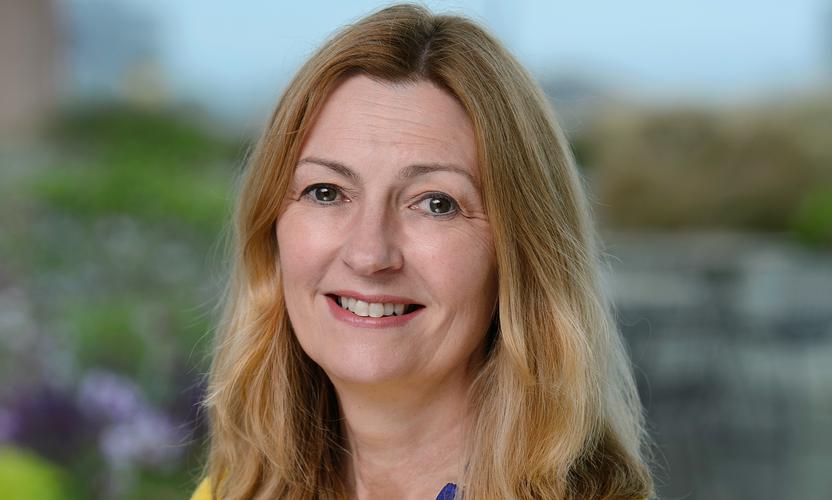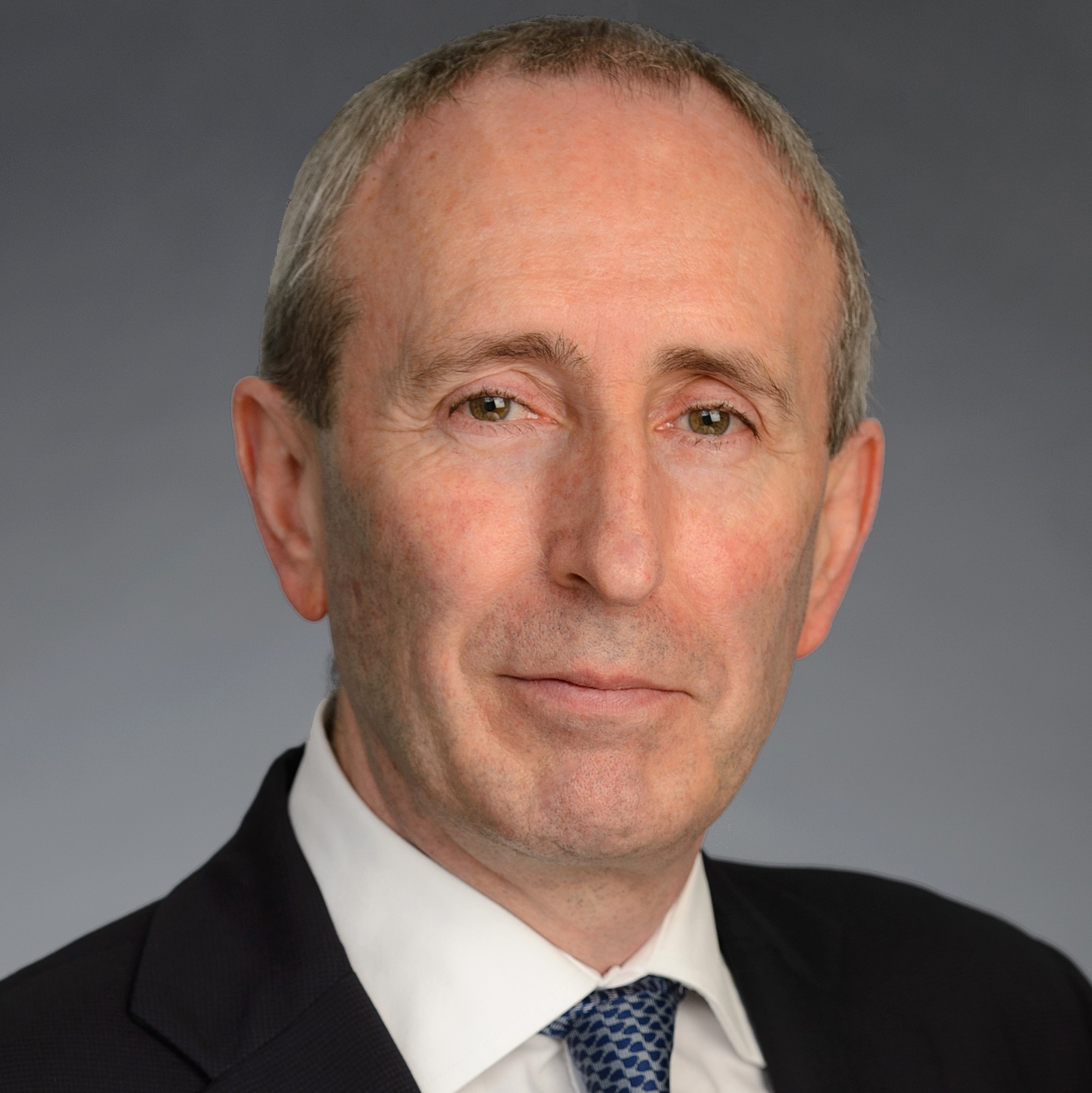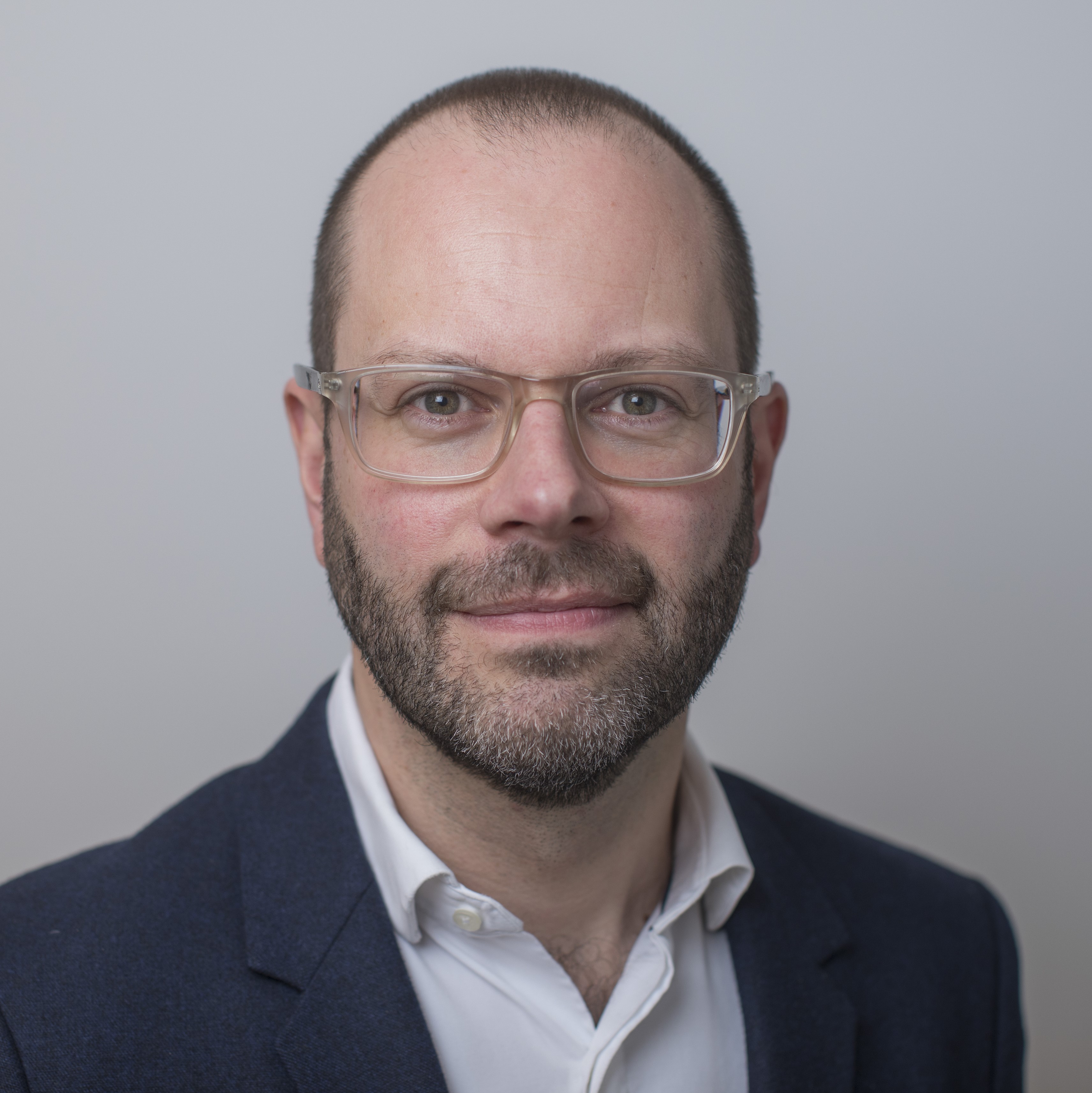Transcript
RICHARD EDGAR Welcome to Fidelity International's Outlook for 2023. More than at any time I can remember the only thing we seem to be guaranteed is volatility and uncertainty. But our investment teams have set out the themes that will guide them over the coming year. Where does the dollar go? And what impact will it have on economies around the world? You can't escape it: The Fed. All eyes on Jerome Powell's decisions and how other central banks may react. And finally, China. What does its very different story mean for growth and for the fragmentation of the global financial system?
Well, I'm joined by Fidelity International's chief executive, Ann Richards, and our global chief investment officer, Andrew McCaffrey. Welcome to you both.
And Anne, if I can start with you. There's an awful lot going on in the world at the moment, and it can be quite overwhelming at times. So what advice would you give to investors who are facing 2023 with some trepidation?
ANNE RICHARDS Well, sitting where we are now in the fourth quarter of 2022, we're already looking back at what has been quite a big bear market move. We're well into this bear market. And the one thing I can say about the current situation is that it does feel like we are closer to the bottom than to the top. You can see that the global economy is slowing in some markets definitely more than others. And we are definitely into recession territory or nearly into recession territory in many of the big economic blocks around the world. Markets will bottom before the economies themselves do. So you always have to be ready for the pivot as you come out the other side. So sometimes it feels too soon. It probably is too soon. You'll never catch the bottom. So as investors, you've got to bear that in mind as you think about building your investment strategies through into 2023.
RICHARD EDGAR A prudent thought. Andrew, a lot of the current pressure on financial markets has been driven by the US dollar. Our fixed income CIO has described it as a wrecking ball through markets. How much do you expect that to continue in 2023?
ANDREW MCCAFFERY So it's really thinking about dollar liquidity at a global level as being withdrawn quite excessively. And that's where we've seen the challenges coming through for markets in terms of liquidity loss, for asset markets generally, but also for economies in that you're not seeing that level of just really stimulus that flows through the world economy. That's gone into retreat. And so where we stand today is it's likely to continue longer whilst the Federal Reserve is very much focused on to its inflation fight. Once we see any chance of that giving way, then you could see really quite a turnaround in the dollar and that may be one of 2023′s big issues that see in that change.
RICHARD EDGAR What about some of the different economies, though? Because what you've described is the problems that are being faced by many of the countries in the West. But what about China? What about Japan, where the Bank of Japan has got a very different policy at the moment? What could be the implications of the divergence of economies like that and on the West?
ANDREW MCCAFFERY China is coming out of what was a very distinct 2020/2021 environment where they'd started tightening policy. They'd taken the economy down. Now they're coming into a more stimulative environment as we come through to the end of '22, which actually sets up quite well for 2023. Now, the degree to which that is a global stimulus or is a China and Asia and surrounding areas [stimulus], I think is the question mark that we will be challenged with and have to navigate in '23. For Japan, it's more a case that they're coming out of decades of deflation. And so it's really to make sure the psychology moves beyond deflation.
So the impulses for elsewhere? Is it actually through their actions they can help to put a little bit more stimulus into the economy globally at this stage, but also when it comes to inflation, are they actually going to keep that buoyancy around a little bit more as well? And that will be playing back to the developed countries where they're also going to have to look at what are those influences globally, but also the domestic influences. And that domestic influence, unfortunately, is still being driven by elements of coming out of the US-China trade challenges, coming out of Covid. Just moving towards a more domestic supply chain, re-industrialising at a local level. And I think those forces are going to be more of the impact that central banks are still going to have to respond to than this global framework as well.
RICHARD EDGAR So Anne, Andrew's painted there the economic picture and hinted at some of the political forces that there are at a domestic level, but at a geopolitical level across the world it seems also that there are fragmenting forces at work there. What are the implications there in your view?
ANNE RICHARDS We are seeing smaller countries think really hard about where their own alignment and their own interests lie because of these changing shapes of global supply chains. As much as anything else, it's meaning that certain markets become more important because they are friend-shoring, they are local-shoring, they are closer to the blocks of the customers that they are serving. So I think it's too early to try and predict where these pieces land, because I don't think everybody is even certain about where they're trying to go with them.
It does, I think, bring you back, particularly when you come back from the macro view down to more of an individual portfolio view and what you're doing with investing in individual companies. It does bring you back to resiliency and contingency because when you think about what we are trying to do very often as investors, particularly in equity portfolios, but also in fixed income and corporate portfolios that we manage as well, we want companies to be resilient because that's how we will make money with them for our investors. And it is the companies that are resilient that are able to respond to this more diffuse geopolitical landscape.
RICHARD EDGAR Now, Andrew, a lot of the attention about the problems has been focused on the West, but what about opportunities in Asia? Because things are quite different in many of the Asian economies.
ANDREW MCCAFFERY And they are. And I think if we look to '23 and we feel that there is a chance that China as well is going to see a level of greater growth, and that also brings about it a cyclical upswing. So you could see some of the elements at play to consumer activity, even looking to the internet again, that could be opportunities looking in China, but also outside. But if you look around the Asean region it's very clear that you have some very constructive tailwinds developing for places such as Indonesia; a very large population, 250 million, seeing a level of per capita growth that we, seen in other countries has been very positive. And therefore, you're going to see that income generation fuelling activity there. That means you can look at one of the things that we always sort of rule out in some of the Western developed markets has been financials, whereas they should see, quite a tailwind, for example. But also looking to Malaysia, very similar dynamics, very strong tailwinds in terms of that income per capita growth, aspects also of where you've had for both of those countries commodities benefits flowing through.
RICHARD EDGAR So that's some positive views there. And Anne, thinking about all of the disruption that there has been in 2022 - and there will be more that that flows through into '23 - are there some positives that we can get from this? Everything being chucked up in the air - as things start to land could there be some positive outcomes from this?
ANNE RICHARDS I think there are some positives that you can take from all of this. I think firstly, the labour shortage that we're seeing in many countries around the world, that labour shortage will, I believe, force a spur of investment to help productivity improvements which quite a few countries have struggled with in more recent years.
And we talk about creative destruction. It's never nice when a business fails, but companies which actually aren't doing very well, we should allow them to fail because then that capital that is trapped gets reinvested into more vibrant, more innovative, better companies. Because let's face it, we haven't really had a credit cycle in a very long time.
And I think the third thing, which is a sort of a positive. Perhaps depends where you sit, whether you think it is or not. Because of the cornucopia of plenty, because of the liquidity bounty that there has been, governments have been able to pretty much do what they like on the fiscal side for quite a long time. As the liquidity famine was brought into markets, governments learned a pretty quick lesson that that wasn't true anymore. And what we hope that will do is it will spur them to look beyond the political cycle, to make those important infrastructural, multi-generation investments that we have seen, that we saw post the Second World War, which was a huge part of, for example, Germany's re-emergence, Japan's re-emergence, Europe's re-emergence generally. The US had a great boom on the back of it, lots of other examples of that. And they were big, important infrastructure that required somebody to think beyond an electoral cycle. If we do that, there is a price for growth down the line. But it will take commitment and vision from political leaders in order to take us in that direction. And, there's a lot of things need to come together for that to happen.
RICHARD EDGAR Long term vision and commitment. Anne, thank you very much indeed. Andrew, thank you. And thank you for watching. You can read the full 2023 Outlook from Fidelity International's investment teams with commentary on all the asset classes at your local Fidelity website or at fidelityinternational.com.
But for now, from all of us at Fidelity, goodbye.
Outlook materials
- Download the PDF of the 2023 Outlook to understand the latest thoughts of our investment teams as they position themselves for the polycrisis (and download the Asia Outlook here).
- Dig deeper into the data that's guiding their thinking: this deck provides context in charts.
- View the investment implications of the 2023 Outlook across different asset classes in this one-page matrix.






































